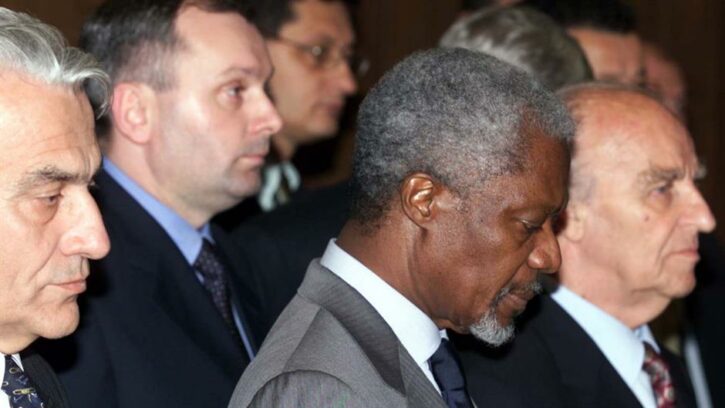
Former UN Secretary-General Kofi Annan who died Saturday was criticised for not stopping the genocide in Rwanda in the 1990’s and the Srebrenica genocide in 1995, as Head of the UN peace operations.
“Mass murders in the former Yugoslavia and Rwanda are a shame for the United Nations because the terrible crimes were committed right in front of our soldiers. We were able to stop these crimes, but instead, we have withdrawn our troops. The UN Security Council member states made a mistake,” Annan said at an international conference on the prevention of genocide, in Stockholm.
Former UN Secretary-General’s envoy for the former Yugoslavia, Boutros-Boutros Ghali later apologized for the UN’s failure in the wars that followed the disintegration of Yugoslavia.
Annan was the Head of the World Organization before the end of the peaceful reintegration of the Croatian Danube region (1996-1998), one of the most successful peacekeeping operations in the history of the UN, which completed the return of occupied territories into the constitutional and legal system of Croatia.
He visited Zagreb in November 2002 for the tenth anniversary of Croatia’s recognition by the UN when the then Croatian Foreign Minister, Tonino Picula, thanked him for everything he did for Croatia and other states made by the dissolution of the former Yugoslavia, as a UN Undersecretary.
During the celebration of his 80th birthday in April, he warned that today's world does not have enough strong leaders, capable of solving global problems.
Annan, who was born in Ghana in 1938, served as the seventh UN Secretary-General, from 1997 to 2006, and was the first to rise from within the ranks of the United Nations staff.
Annan was awarded the Nobel Peace Prize jointly with the United Nations in 2001 “for their work for a better organized and more peaceful world.”




